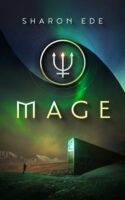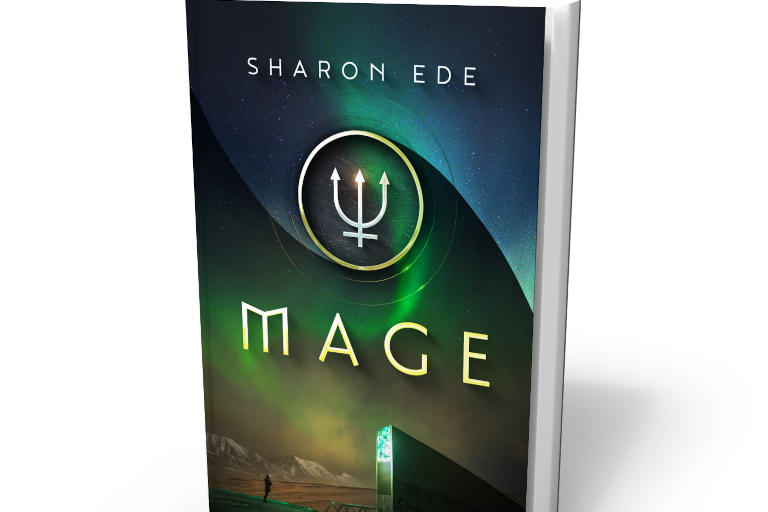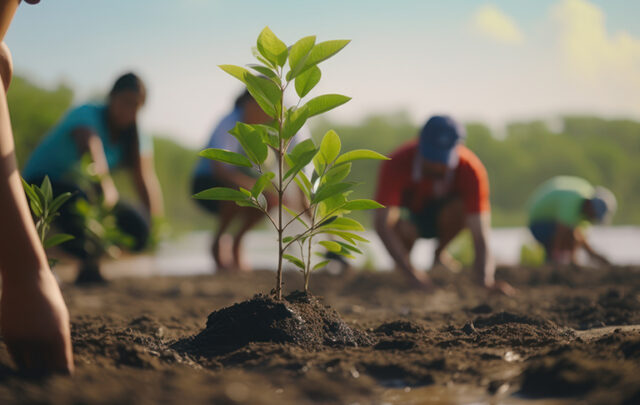“We have to taste it to believe it…we are damned fools.”
Those are the words of climate scientist Dr James Hansen this month, as mid 2023 sees the northern hemisphere endure an unprecedented heatwave. Thirty five years ago, when he was Director of NASA’s Goddard Institute for Space Studies, Hansen gave the first testimony on climate change to the US Senate.
 Hansen’s frustrated observation is the core idea of my independent, award winning novel, MAGE, which has the tagline ‘what if we could feel the future before it arrives?’ The story has a climate lens, along with many sustainability elements, and the underlying theme is human behaviour change.
Hansen’s frustrated observation is the core idea of my independent, award winning novel, MAGE, which has the tagline ‘what if we could feel the future before it arrives?’ The story has a climate lens, along with many sustainability elements, and the underlying theme is human behaviour change.
I’ve been working in sustainability in government and community roles since 1993, including five years each in the ecological city and post growth economics movements. I wrote MAGE because I wanted to share a lot of ideas and things I had learned over 30 years with others – but in a fictional story.
Stories stick with people in a way that conveying information in a factual form does not. I decided to wrap up ideas in a story an audience would enjoy, but also make them curious, sparking imagination, and leaving readers thinking about the ideas and themes long after they finish the book.
Yet I’ve found a lot of the ‘cli-fi’ films and books to be a bit depressing. What if we work things out? Where’s the hope? And where’s the story to share that becomes the basis of conversations? I wrote an action-adventure book that delved more deeply, beyond the challenge of climate change, into the human psyche.
…like reading a Masters of Environment course in a novel-Daniel Simons, Cofounder & Director, Transitions Film Festival, on ‘MAGE’
The inspiration for the book originally came from Professor Bill Rees at the University of British Colombia in Vancouver, whose work on ecological footprint and overshoot I first encountered in 1994 in a workshop he ran at an international conference. Years later, in the mid 2000s, Rees had written a draft of a paper called ‘Is Humanity Fatally Successful?’ which he shared with me. The idea intrigued me, and the notion of whether humanity may have an inherent propensity to bring about our own downfall, became the main focus of the plot – but something was missing.
The corollary to Rees’s question is: ‘if so, what can we do about it?’ And there are plenty of things we can do about it, but given the scale of the impacts we will face – and are beginning to encounter – the response to the scientific evidence since the 1992 Rio Summit hasn’t exactly been commensurate. What would it take? As Hansen noted, we need to feel it.
The missing piece came from the other inspiration for the story – a colleague I never met in person, Professor Andrew Wilford of Bond University in Queensland. He had written a paper called ‘Spaceship Earth Mission Assurance’, which mashed up the concept of ‘spaceship earth’ popularised by Buckminster Fuller with Wilf’s ‘mission critical’ approach from his engineering and aviation background in the Royal Australian Air Force and Boeing.
Wilf’s paper gave me the idea of the main plot device in the book, and also the acronym which became its title. Wilf is sadly no longer with us – he died too young in 2012. He was such a big inspiration that I ensured he had a presence as a character in the book. I wish he’d had a chance to read the story.
When disaster survivor Ambra Lightstone is confronted by an otherworldly stranger, she is set on a collision course with the vengeful heir of a hidden civilisation, and must prevent him from unleashing a terrible force that will change the face of the earth – and to safeguard a technology that could save it.
You can find the book here in electronic form. and in print – rather than buying, ask your local library to source a copy:
You also can listen to the author read the story free on YouTube – chapters began dropping on the book’s third birthday, 22 April, with the final instalment on 3 September:
Please consider subscribing to the channel, liking and sharing the content – it helps get the story out.
A series of Teaching Resources related to concepts in the book are currently under development – feedback from high school educators welcome:
www.magethenovel.com/teaching-resources





